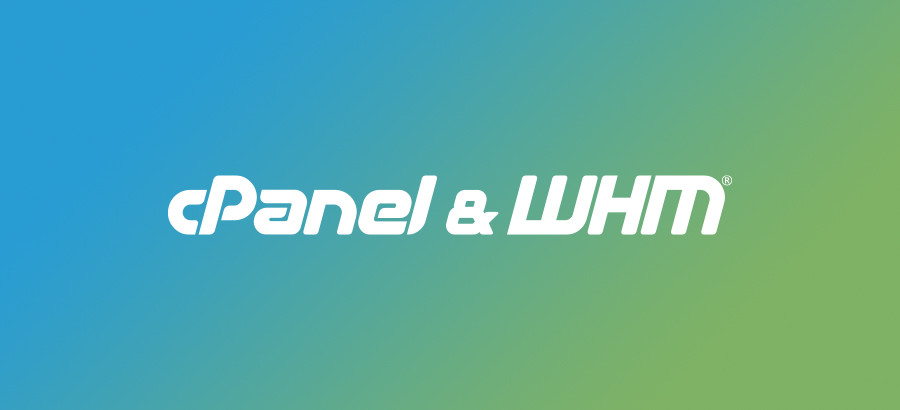- Advertising
- Bare Metal
- Bare Metal Cloud
- Benchmarks
- Big Data Benchmarks
- Big Data Experts Interviews
- Big Data Technologies
- Big Data Use Cases
- Big Data Week
- Cloud
- Data Lake as a Service
- Databases
- Dedicated Servers
- Disaster Recovery
- Features
- Fun
- GoTech World
- Hadoop
- Healthcare
- Industry Standards
- Insurance
- Linux
- News
- NoSQL
- Online Retail
- People of Bigstep
- Performance for Big Data Apps
- Press
- Press Corner
- Security
- Tech Trends
- Tutorial
- What is Big Data
cPanel & WHM: Learn the Difference on Bigstep Metal Cloud
This year, in March, cPanel celebrated its 26th year of providing the graphical interface and automation tools that simplify the process of hosting a website. cPanel & WHM allows both sysadmins and end-users to configure and control the server and website administration. But what’s the difference between cPanel and WHM, which are their features, and what are some of cPanel's recommendations in terms of hosting?

What’s the Difference Between cPanel and WHM?
While cPanel is limited to managing a single hosting account, the WebHost Manager (WHM) allows the administration of the entire server. In short, a hosting provider will use WHM to manage the servers and they will allow customers to work on their own website through a cPanel account.
WHM has been specifically tailored for hosting providers, like us, or for companies that manage their own servers to:
- Easily migrate new customers
- Customize the services offered
- View, analyze, and diagnose server stats
- Create cPanel accounts and hosting packages
- Secure the system through various methods, such as:
- Blacklisting or whitelisting individual IPs or entire regions and countries
- Deploying SSL certificates to sites across your server network
- Encrypting all outbound messages
- Offering multi-factor authentication to customers
We have also written a number of useful tutorials for WHM:
- How to Install ImageMagick in WHM
- Keep Your Pet’s Name to Yourself: WHM Password Security 101
- How to Configure the Best TLS Settings in WHM
- Nginx in WHM: What is the Best Option
- Using lsapi in WHM
Similarly, the cPanel interface allows customers to easily manage their websites, by:
- Publishing a website
- Creating emails and calendars
- Backing up, transferring, and managing files
- Managing domains and subdomains
- Launching databases of choice (phpMyAdmin, MySQL, etc.)
- Checking metrics, such as visitors, errors, bandwidth, and so on
- Installing apps and plugins
We use cPanel for some of our customers as the platform is user-friendly, secure, and intuitive.
cPanel Hosting Recommendations
Since cPanel is at the core of most hosting options, they recently published a short overview of what to take into consideration when choosing your hosting solution which you can read in full here. They discuss everything from hardware, bandwidth, and managed services, to describing each server type, which we also covered in our guide, The Businessman’s Guide to the Server Galaxy.
What Does cPanel Say About Dedicated and Bare Metal Servers?
If you’re looking for higher security and higher performance, cPanel recommends bare metal servers due to their single-tenancy, and we agree – sharing server space and resources with other users leads to lower performance and slower speed. They also recommend bare metal if you need to create and configure your own custom infrastructure, since you can install and setup the server according to your software specifications. However, configuring a server on your own requires technical skills that perhaps your company doesn’t have. In that case, you’ll need to choose a provider that offers managed services.
Additional note: The cPanel license cost is higher for dedicated servers than it is for virtual ones, due to the superior performance of dedicated bare metal servers.
Why Bigstep Metal Cloud
Our Metal Cloud servers have been designed to close the gap between the traditional server types and to provide both the power of bare metal and some of the versatility of cloud machines. You can dynamically increase storage size to meet changing needs and upgrade your servers with just a few clicks. Since it uses no virtualization, 100% of system resources are available for your applications.
The Metal Cloud architecture consists of physical servers of several sizes, connected to separate storage pools by a very fast dedicated Layer 2 network. This setup allows drives to be detached from one server and attached to another one, so a server can be replaced with one of a different type in just a few minutes. Similar to cloud machines, metal cloud servers can be upgraded or downgraded according to needs, with minimal downtime. In order to provide the best performance, some of the servers also have local disks, including SSD and NVMe drives. Additional private dedicated layer 2 networks can also be configured, as well as VLANs and bonded connections.
Unlike physical servers, which must be provisioned and configured manually, Metal Cloud machines offer templates and automatic installation for all of the most common operating systems, as well as automatic provisioning and scaling of a number of big data applications, container clusters or object storage nodes. Due to this and to their high performance and scalability, Metal Cloud servers are a great choice for almost any use case.
We also provide managed services, on-demand storage, and backup management as available add-ons, if you don’t have the in-house manpower to manage your custom bare metal server yourself.
Leave a Reply
Your email address will not be published.